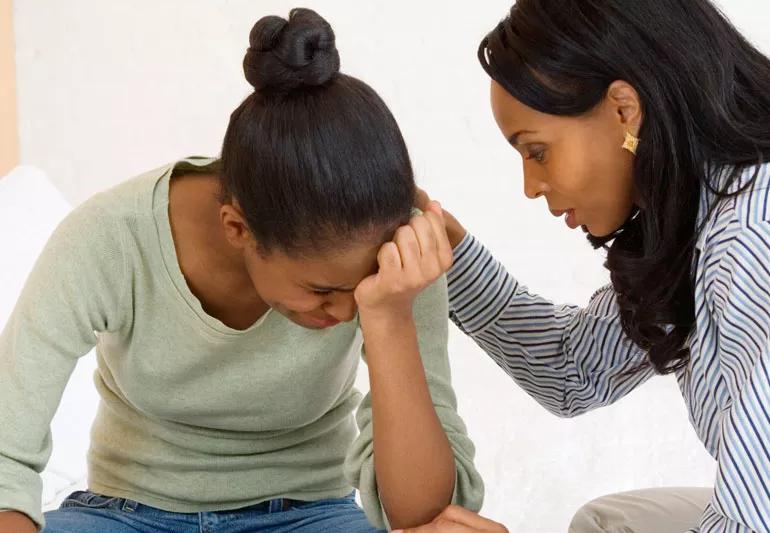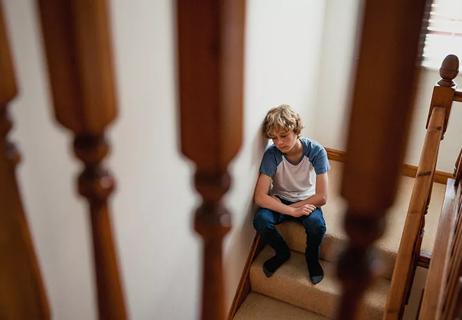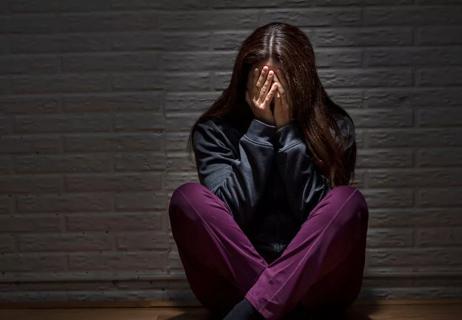Let kids know it’s OK to get help for mental health

When teens hear about suicide or are directly affected by it (they know a classmate, family member or friend who has died by suicide), it’s scary. It’s also scary for their parents — and with good reason: Suicide is the second leading cause of death among young people aged 10 to 24, after motor vehicle accidents.
Advertisement
Cleveland Clinic is a non-profit academic medical center. Advertising on our site helps support our mission. We do not endorse non-Cleveland Clinic products or services. Policy
“It is important to look out for teen suicide warning signs and to let kids know that friends should never let friends keep secrets about suicidal thoughts,” says pediatrician and adolescent medicine specialist Ellen Rome, MD, MPH. “They can, and must, tell an adult.”
At the same time, parents and schools should be vigilant and emphasize that no child is responsible for the actions of another child, student or friend. The most proactive way to do this is to always try fostering an environment of kindness and empathy, so that in the case a child is being bullied or experiencing obstacles, they can still see a light at the end of the tunnel.
Dr. Rome encourages all adults to understand the warning signs of teen suicide and shares tips for how to parent a suicidal teenager. “The worst thing you can do is turn a blind eye or shrug off your teenager’s worrisome behavior,” emphasizes Dr. Rome.
Family, friends and schools should be able to recognize and report the red flags that make us worry about suicide in a young person. Make note of any of the following behaviors:
Advertisement
When someone is depressed, they may seem really sad. But sometimes, we may only see the tip of the iceberg.
The tip of the iceberg can be the other symptoms of depression, as well, including difficulty sleeping, or sleeping too much, feeling numb or self-harm like cutting. The iceberg below may be the depression itself.
First thing’s first: “We need to de-stigmatize emotional health and well-being so that young people feel comfortable reaching out for help to a trusted adult before a crisis occurs,” says Dr. Rome.
This begins at home by making sure each family member knows they can get help, if they need it, for their mental health.
“We also never want to romanticize suicide. We want to focus instead on how to care for the living — on how to make each child’s and teen’s life meaningful,” she adds.
We do this by making kids feel loved and valued — by expecting them to be their best selves and setting loving limits, at home and school.
One of the best ways parents can build resiliency is to be a guidepost for their kids instead of a parent who hovers.
Be your teen’s moral compass, their beacon of light. Guide them on issues involving their safety or ethics. Give them a sense of direction, but let them steer the boat.
Any parent or teacher concerned that a teen may feel suicidal should take them to the emergency room for urgent help or call 911. Anyone concerned can also find expert, free and confidential help, 24/7, by:
“The more we open up lines of communication with our children, the more comfortable they’ll feel about turning to us for help,” says Dr. Rome.
Advertisement
Learn more about our editorial process.
Advertisement

Americans aged 65+ are at much higher risk for completing suicide than other demographics

Start a conversation, gently ask questions and offer help without judgment

988 updates and replaces the old suicide hotline

Cutting and other forms of self-injury are on the rise among teens

Plus, 4 warning signs to look out for

Know the warning signs and when to get help

Type 2 diabetes isn’t inevitable with these dietary changes

Applying a hot or cold compress can help with pain